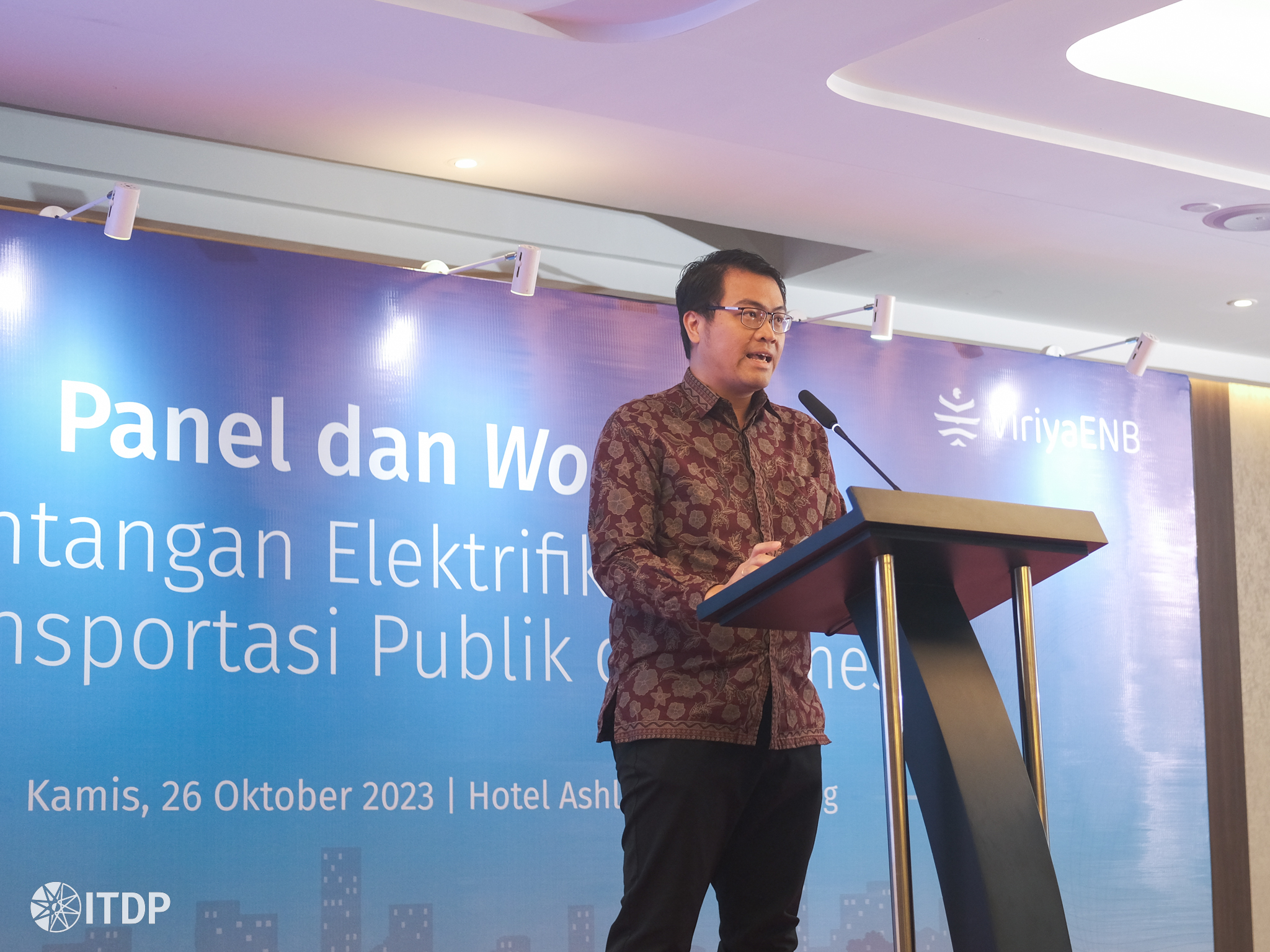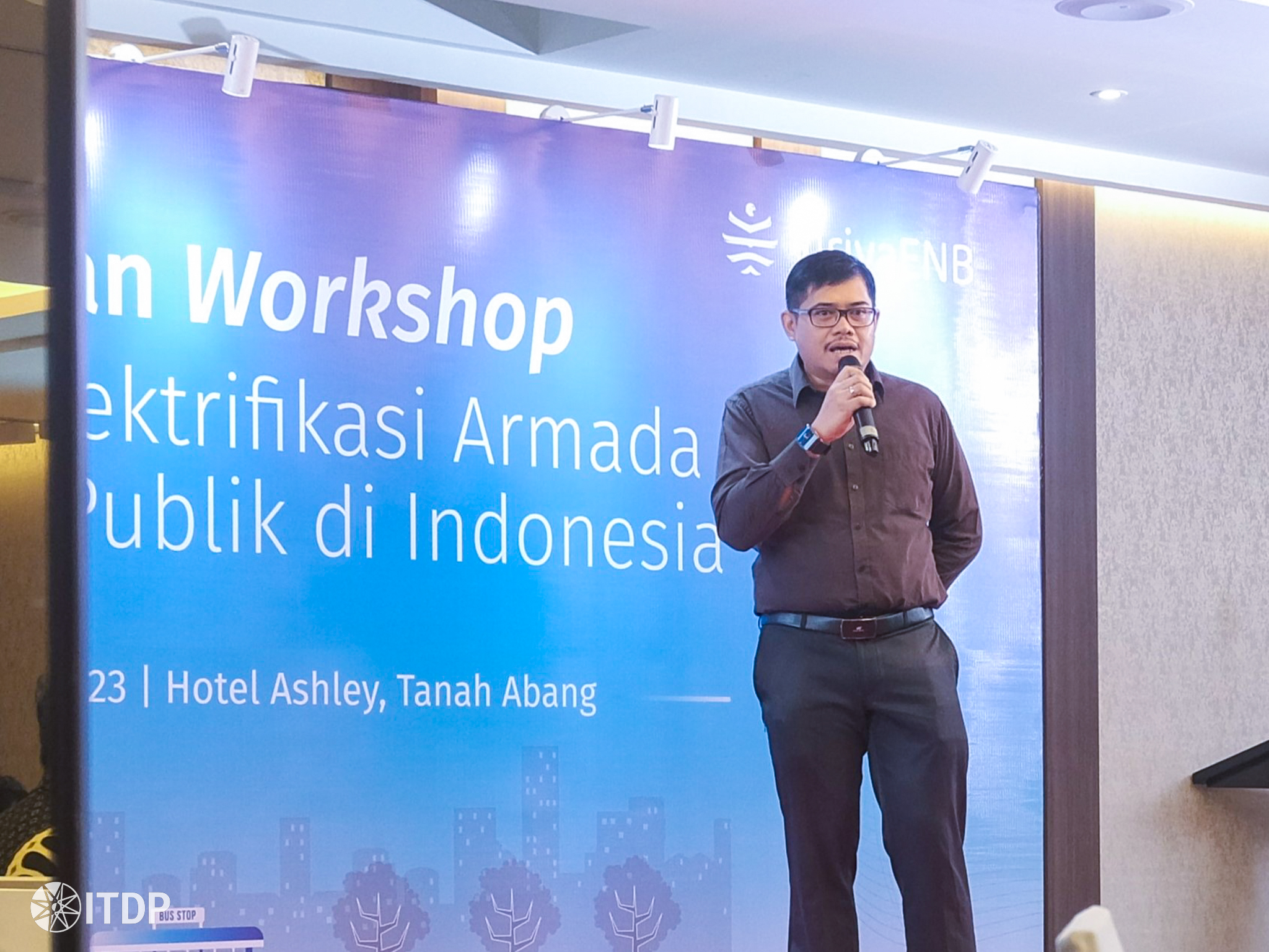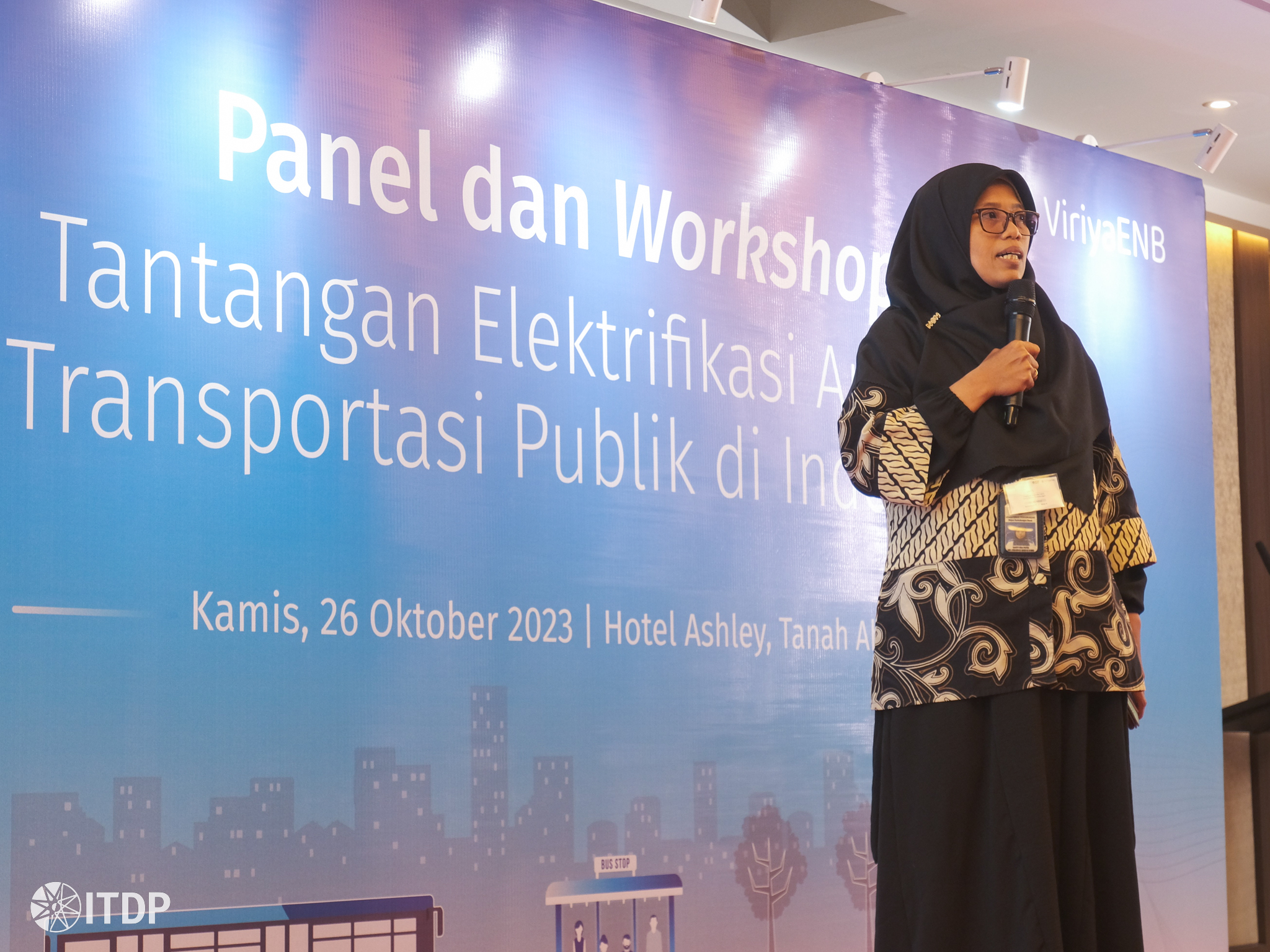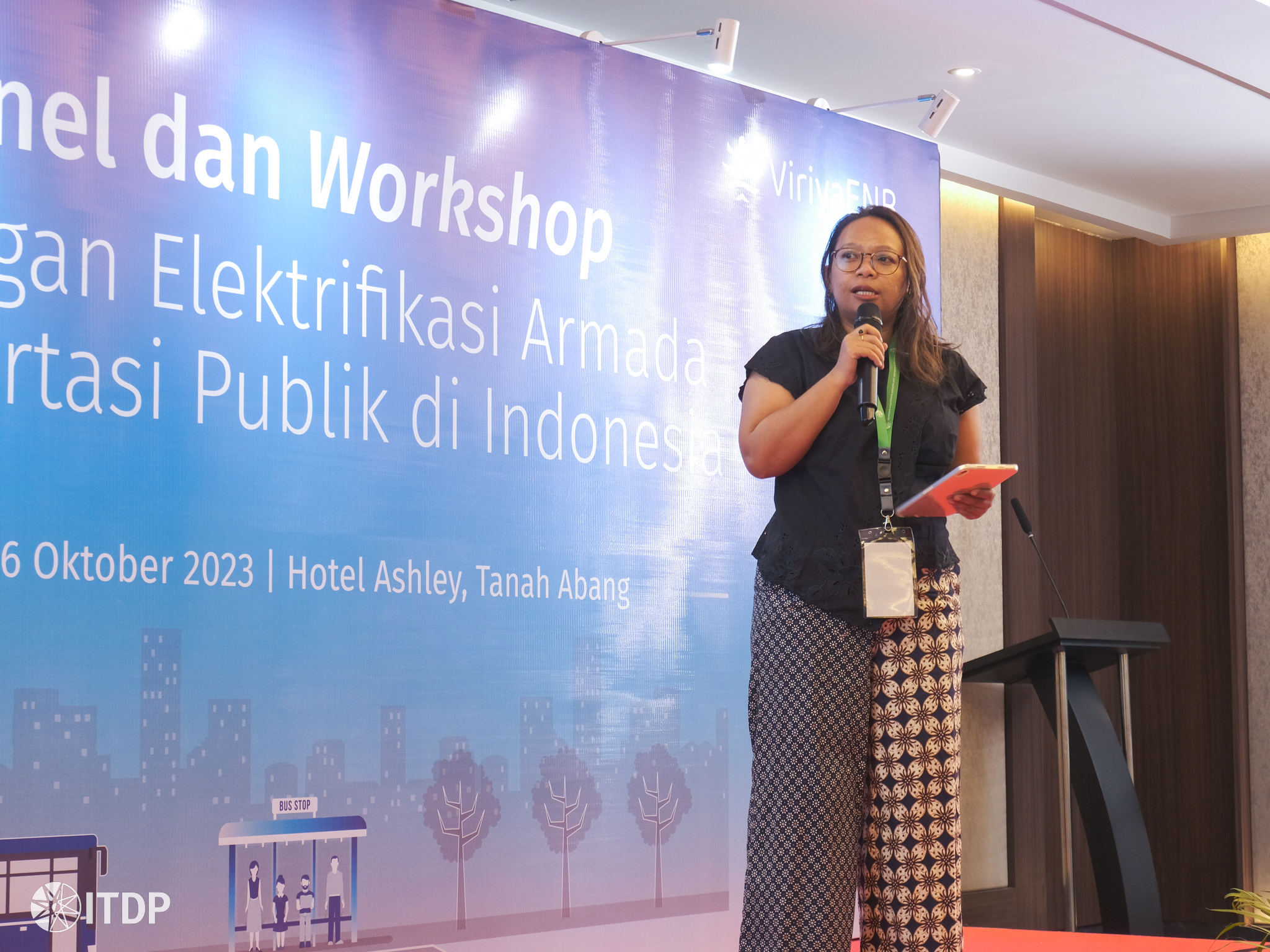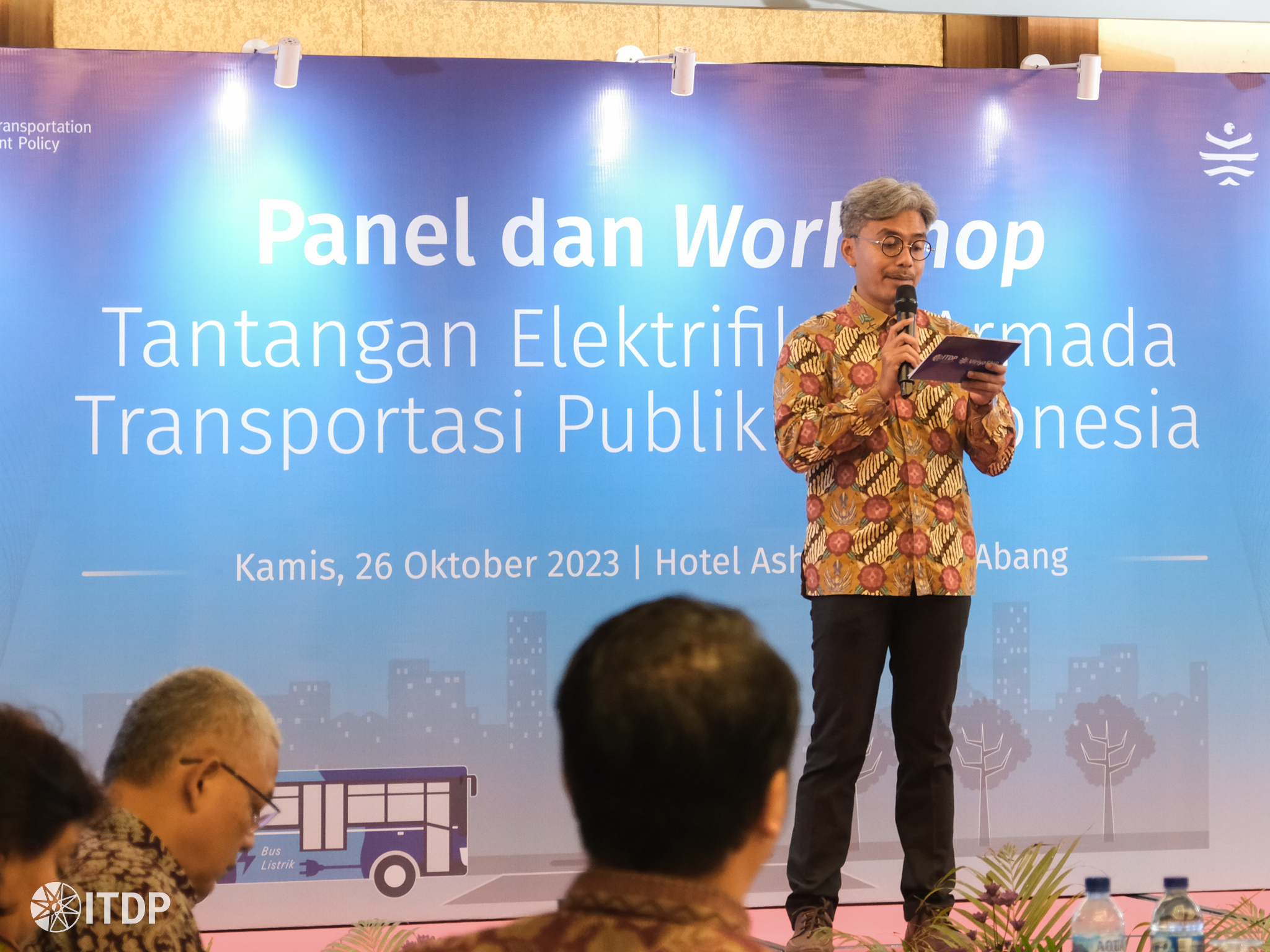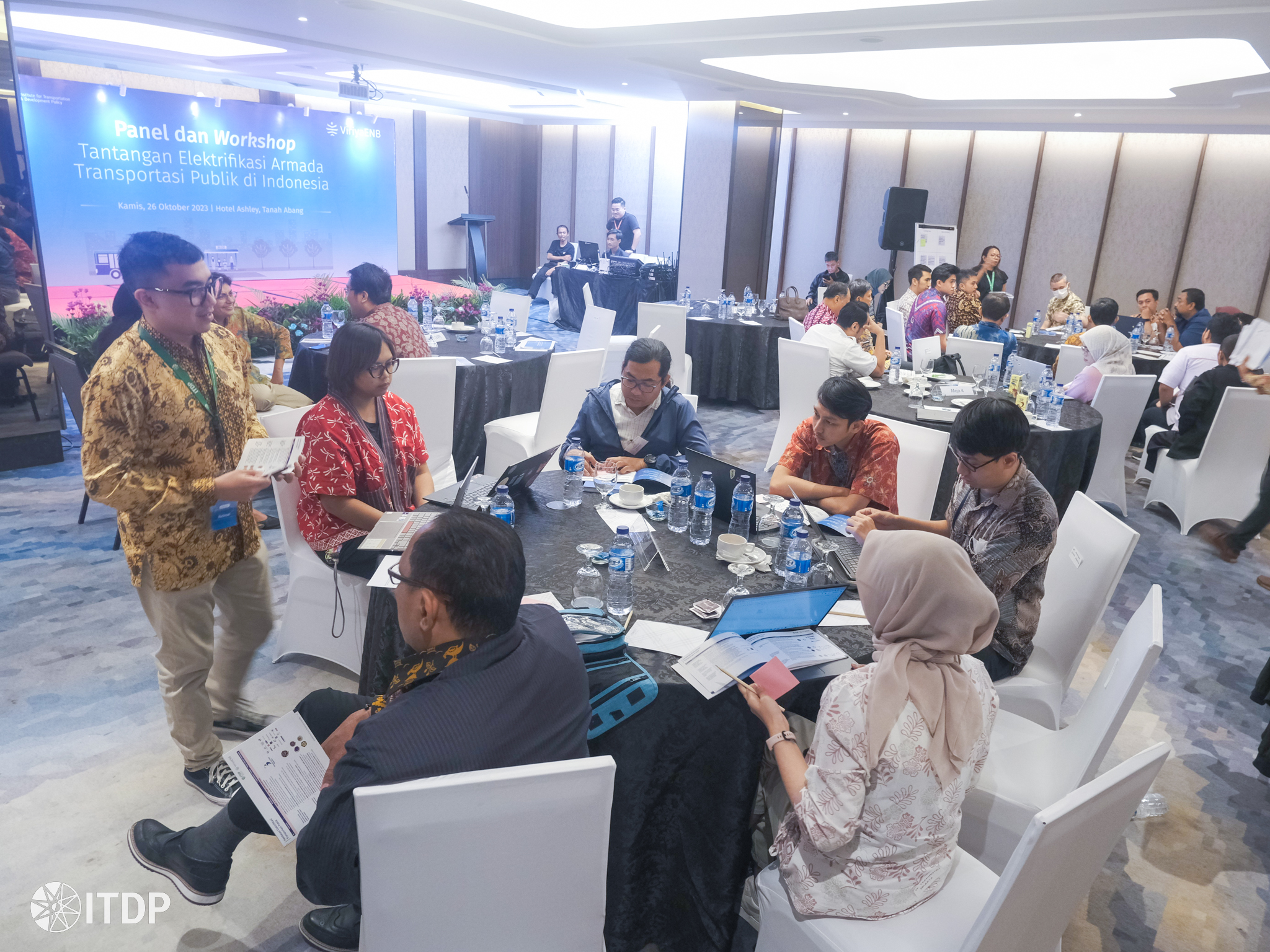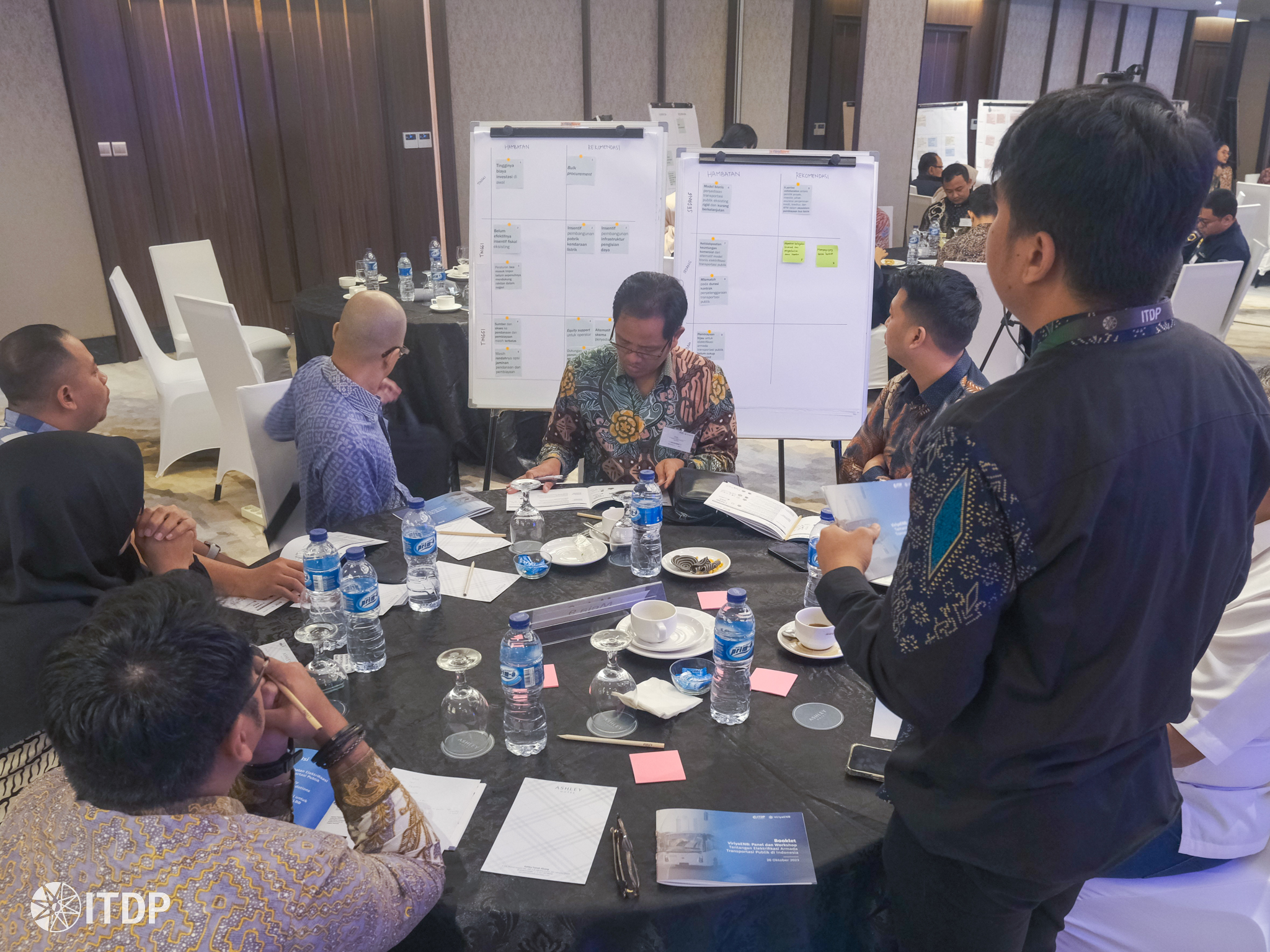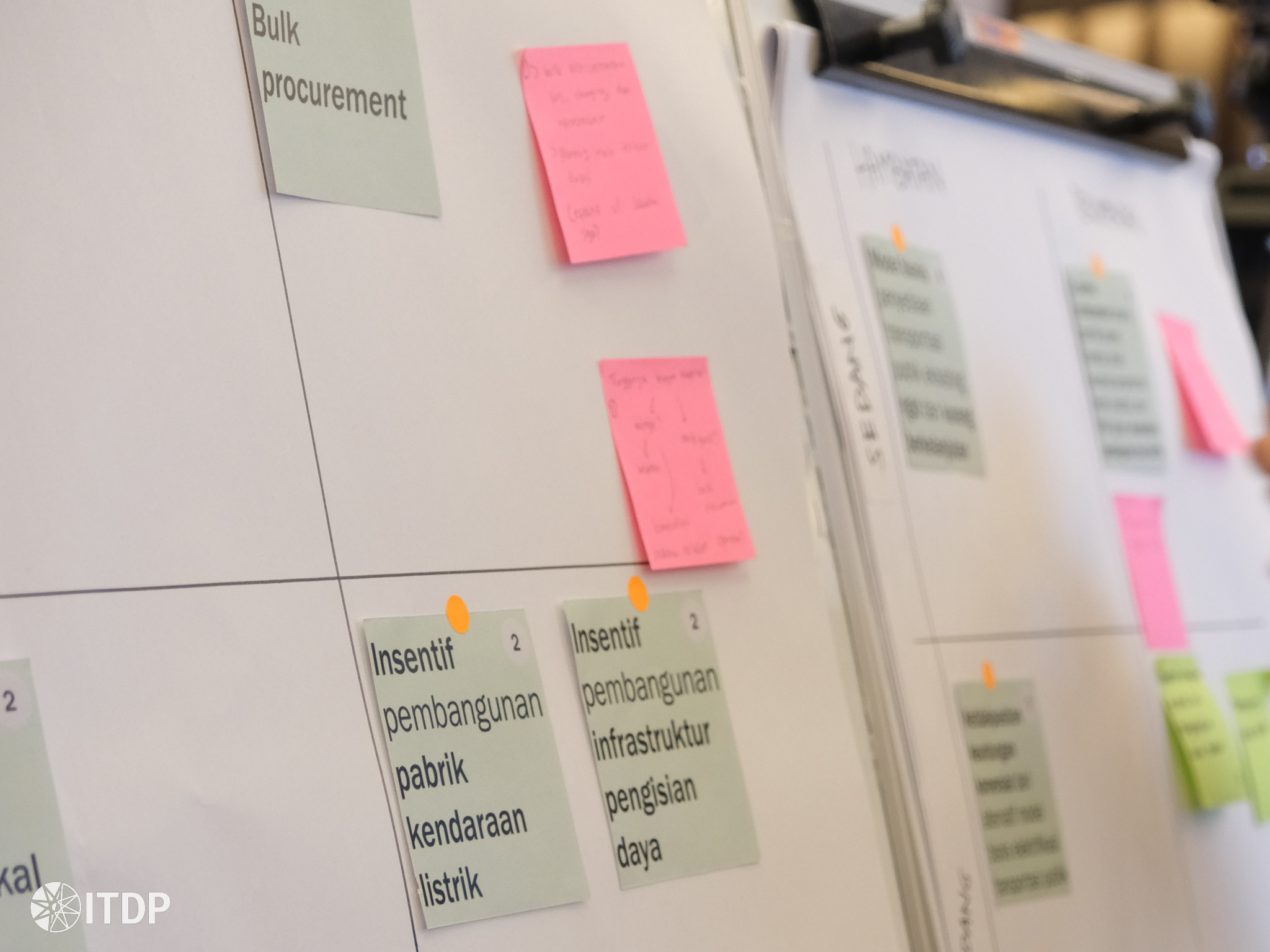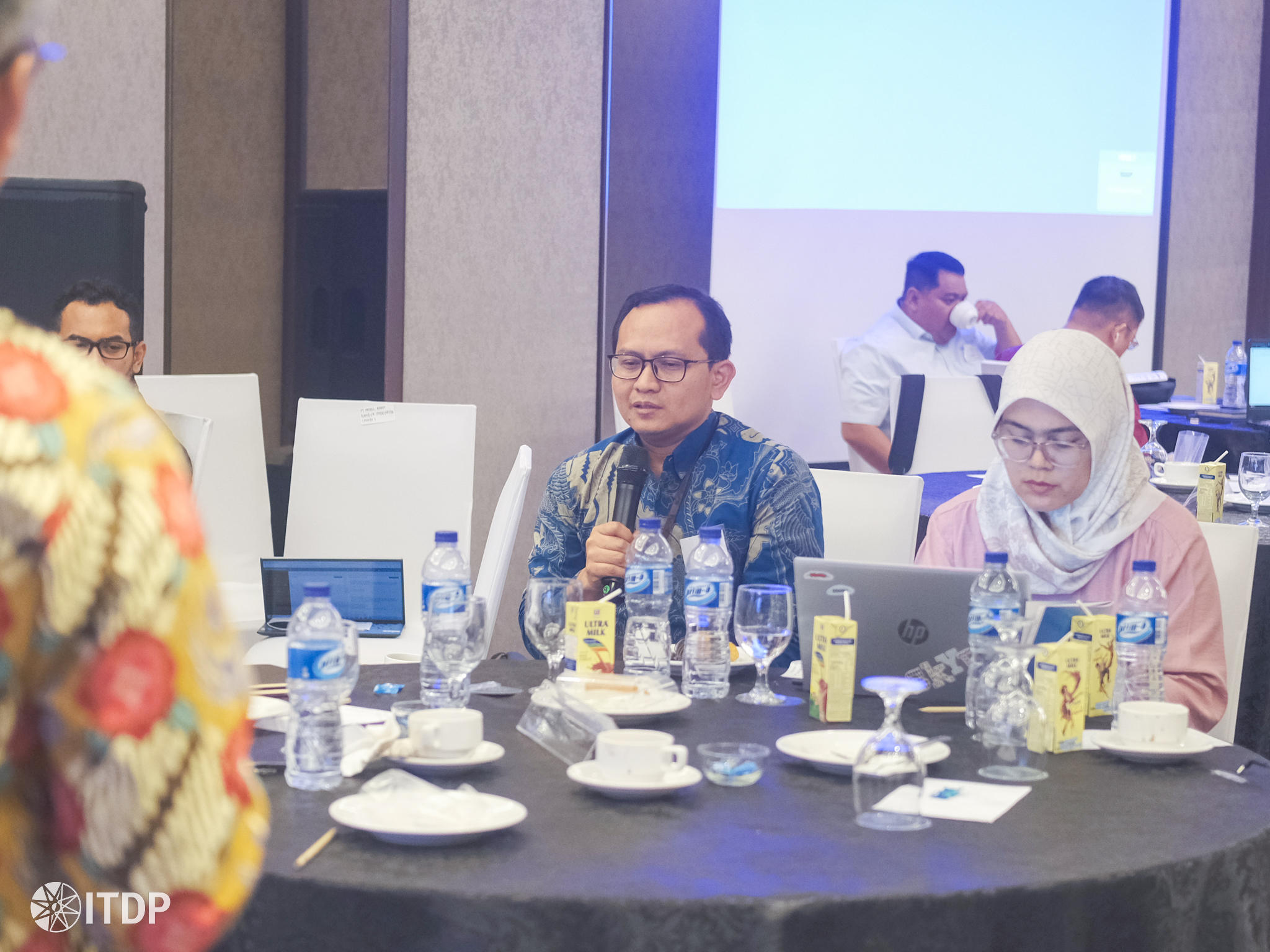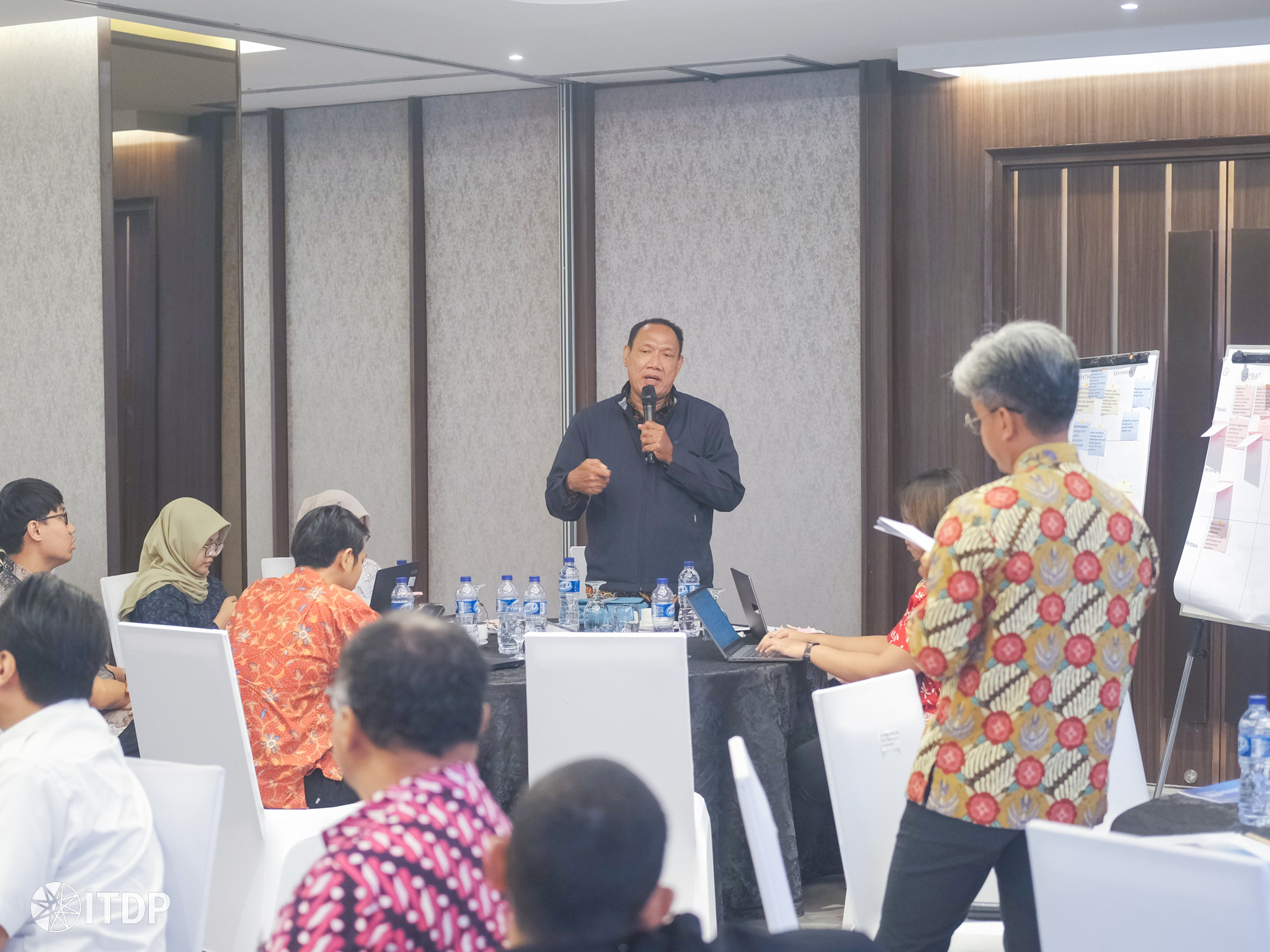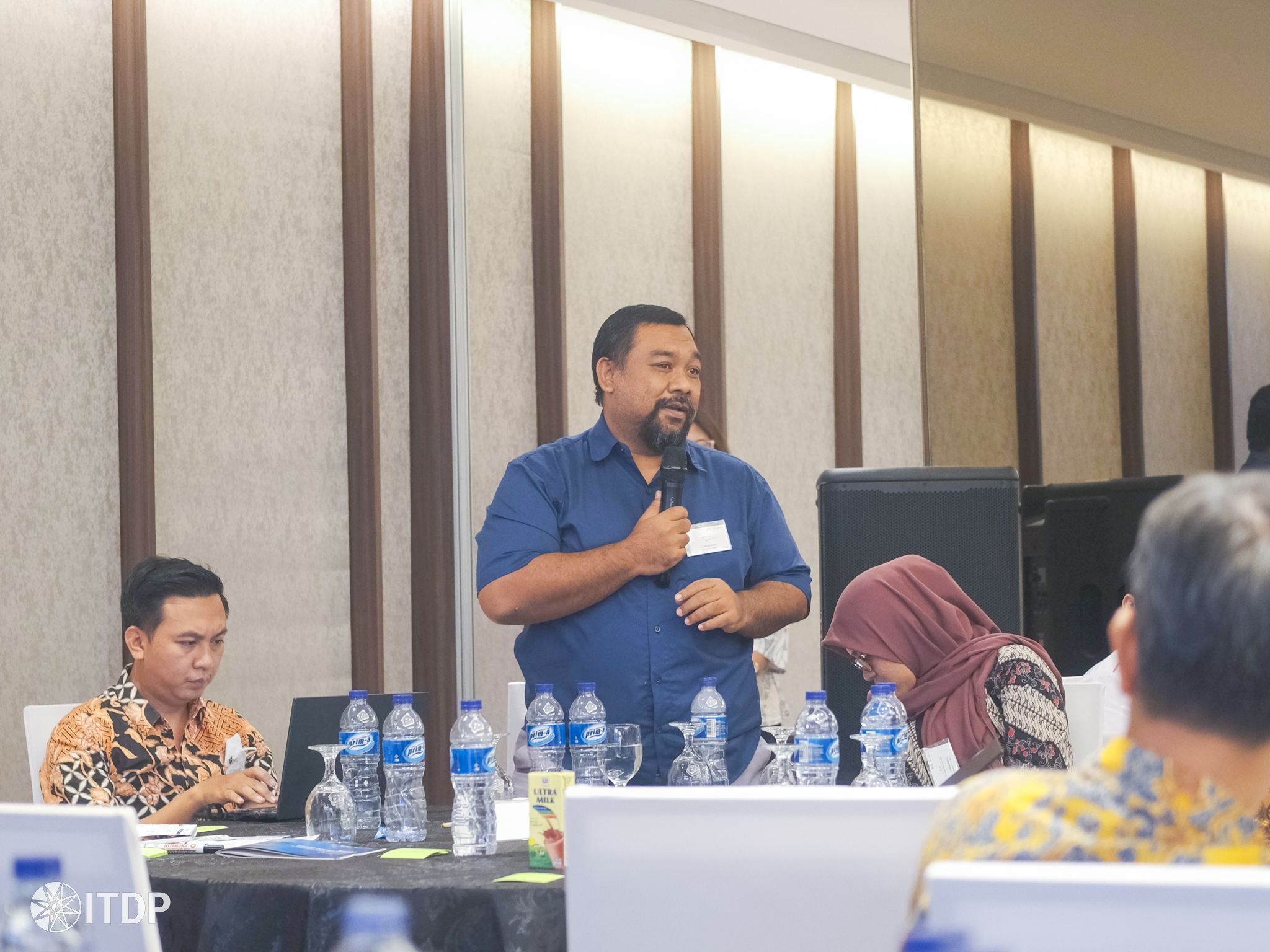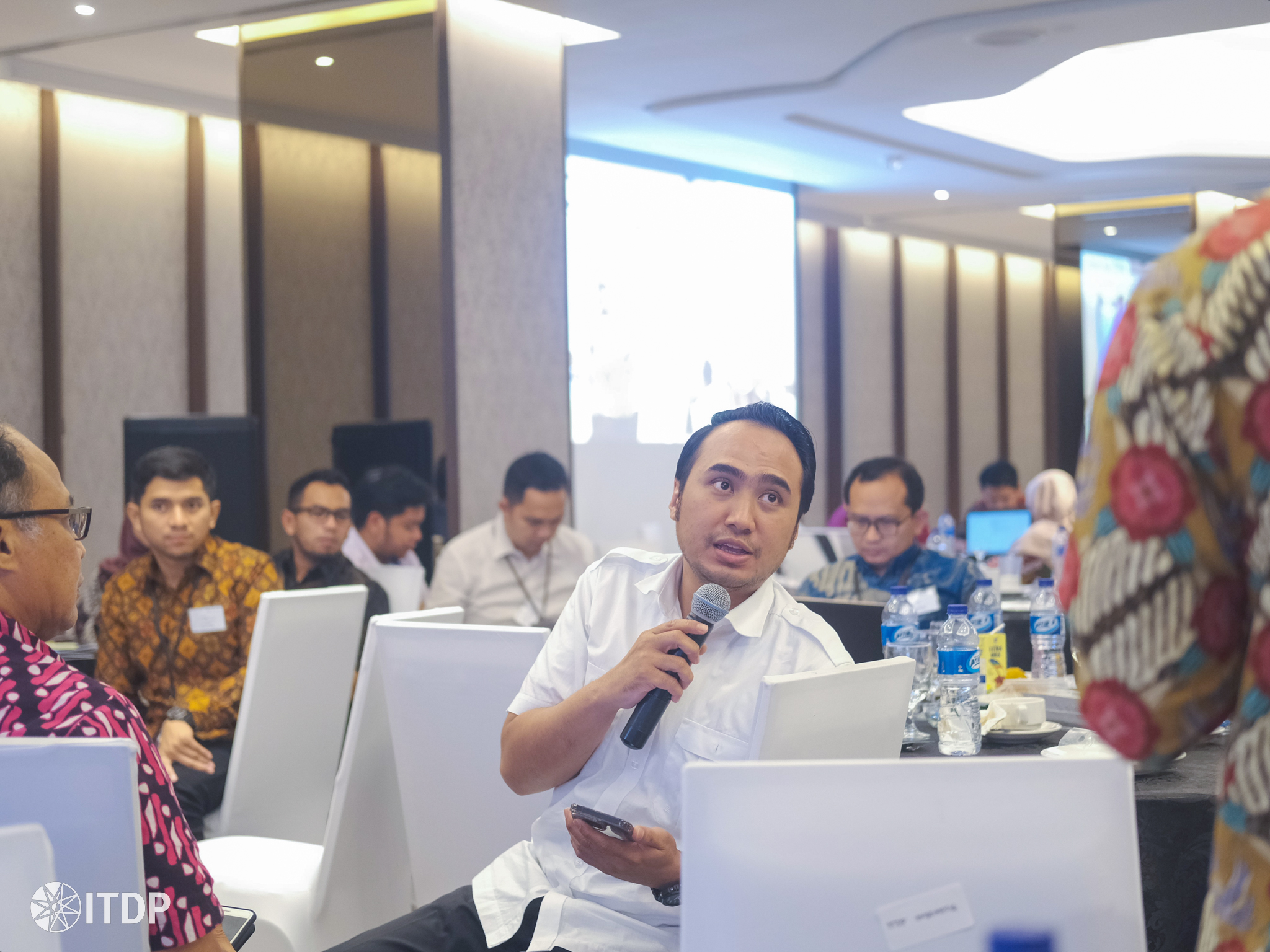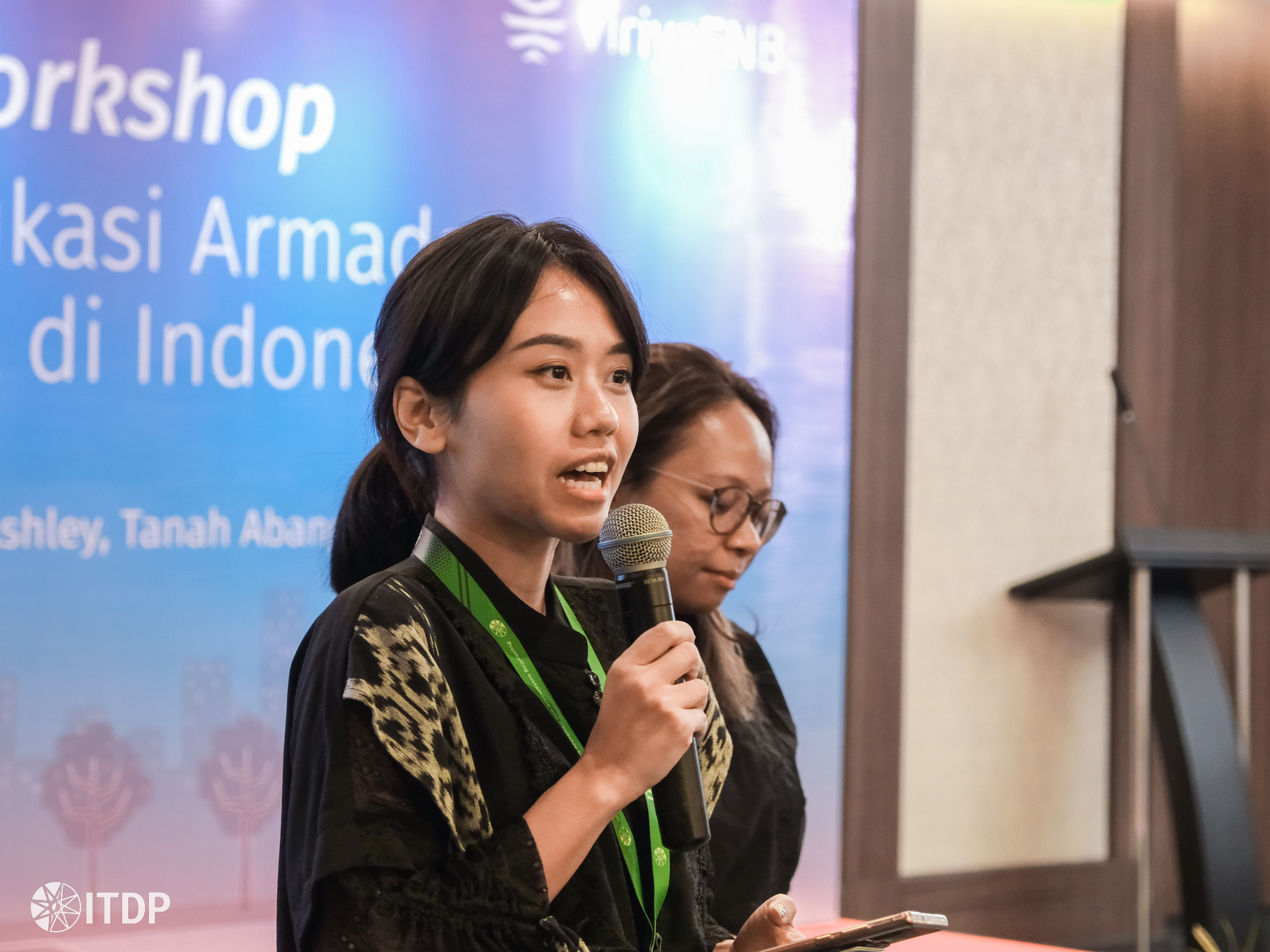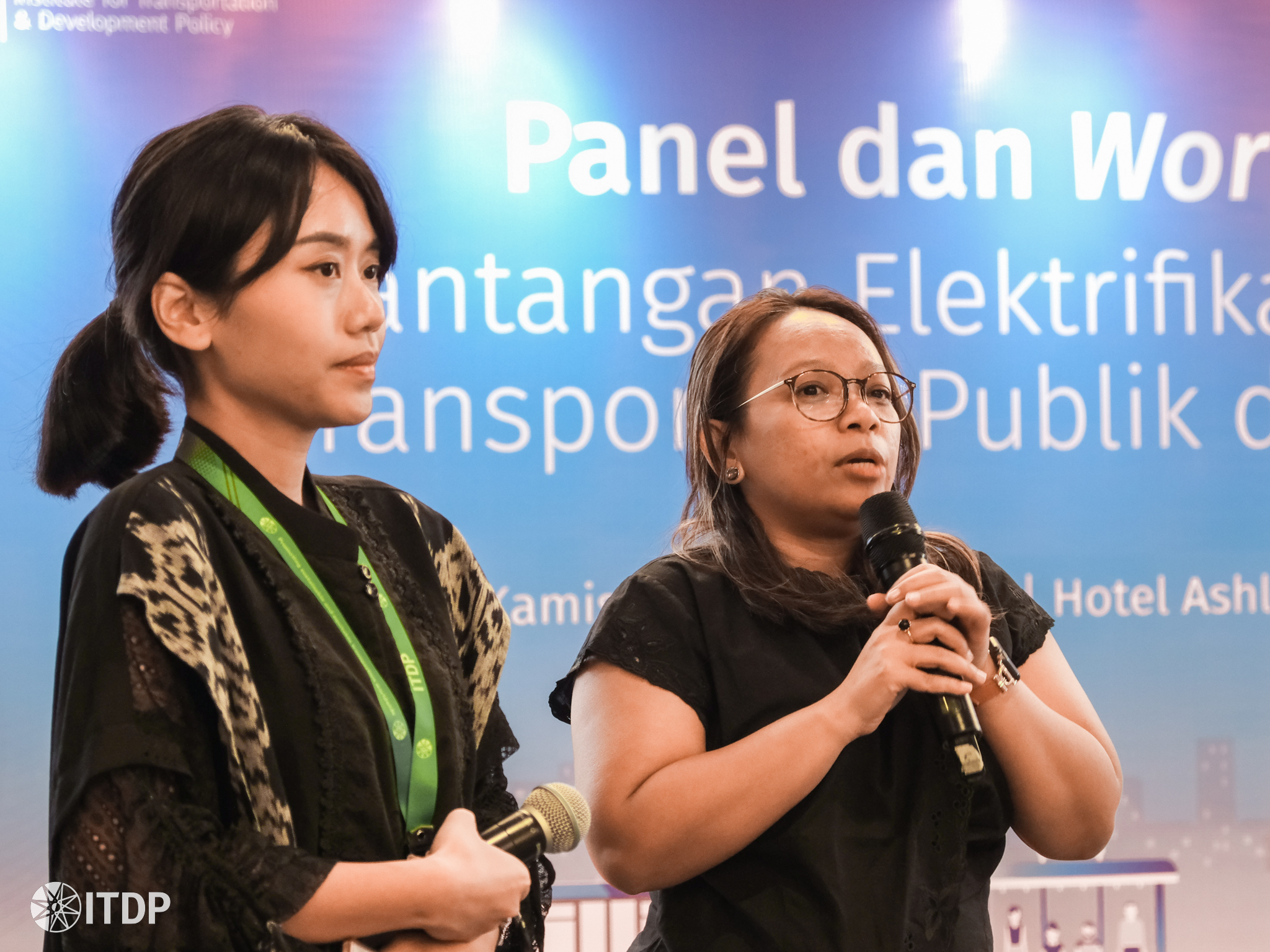October 31, 2023
Panel and Workshop on the Challenges of Electrifying Indonesia’s Public Transportation Fleet
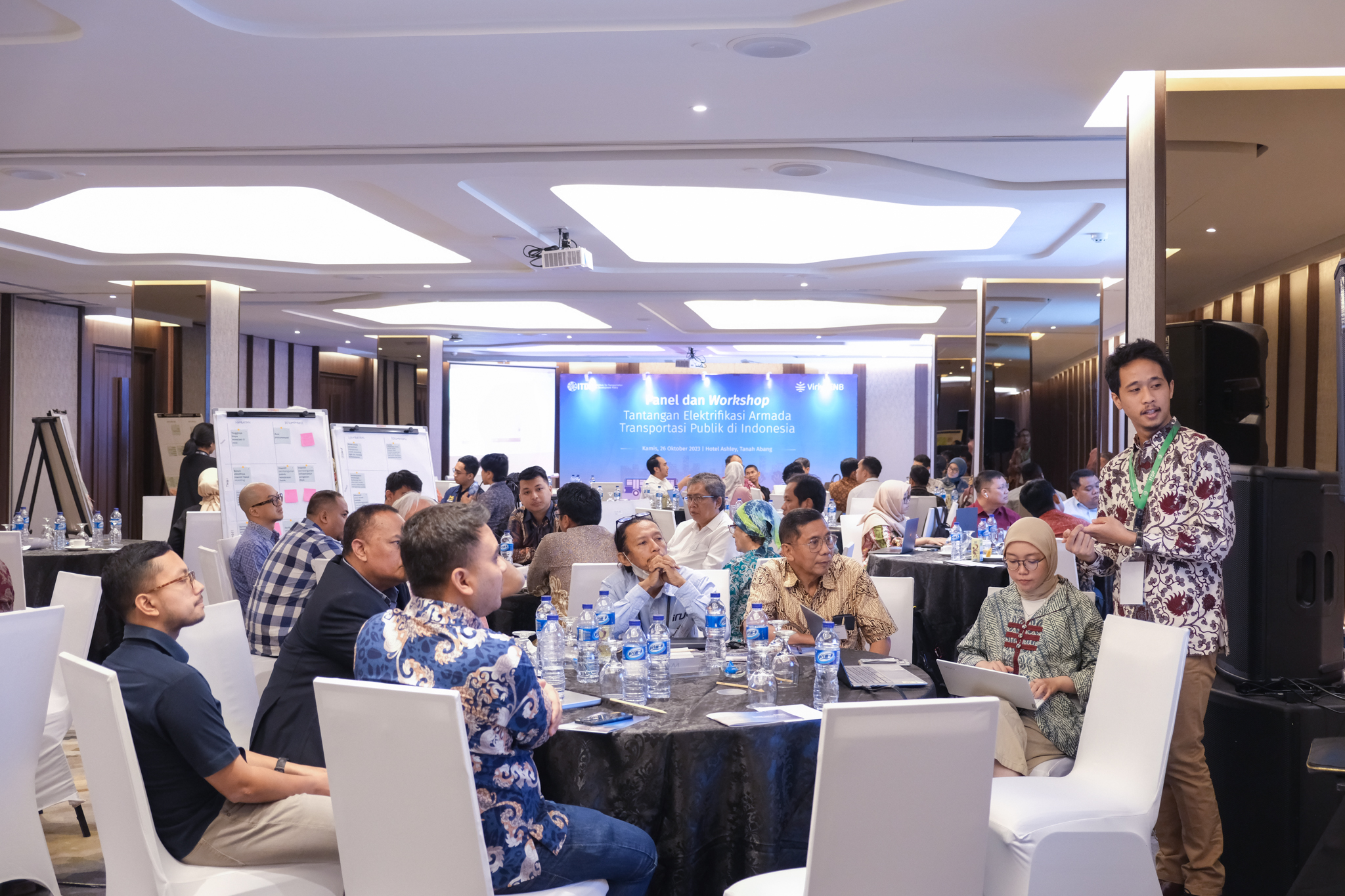
ITDP Indonesia, in collaboration with the Ministry of Transportation and with support from ViriyaENB, organized “Panel and Workshop: Challenges of Electrifying Indonesia’s Public Transport Fleet” on Thursday, October 26, 2023, at the Ashley Tanah Abang Hotel, Central Jakarta. The event invited a number of representatives from government agencies and institutions, operators, electric bus industry players, and financing institutions.
The following participants attended this event; Director of Road Transport of the Ministry of Transportation, Suharto; the Coordinating Ministry for Maritime Affairs and Investment, Arianto Wibowo, Lead, Moving Indonesia World Economic Forum, Ririn Radiawatikusuma, representative from Senior Urban Transport Specialist The World Bank, Nupur Gupta, Wahyudi Ismanto, Commissioner of PT Higer Maju Indonesia, Antonius Raharja Ismanto, President Director of PT Higer Maju Indonesia, Rian Ernest, Secretary General of the Electric Mobility Ecosystem Association (AEML), Nurisdipta Nusaputra, Senior Investment Specialist of PT Danareksa, and Bayu Yudhi Hermawan, VP Business Development of PT Industri Baterai Indonesia (IBI).
The event was opened with remarks from ITDP Indonesia’s Interim Director, Gonggomtua E. Sitanggang, and the Director of Road Transport of the Ministry of Transportation, Suharto. Gonggomtua said that the purpose of this event was to consolidate inputs and insights from all levels of stakeholders in the electric bus ecosystem regarding the challenges in transitioning to the use of electric buses as part of the Roadmap and Draft National Incentive Program for Public Transportation Electrification, a collaboration between ITDP Indonesia and the Ministry of Transportation supported by ViriyaENB.
In his speech, director of Road Transport of the Ministry of Transportation, Suharto stated that the Ministry of Transportation will continue to encourage metropolitan cities to use electric-based mass public transport with a target of 100% electrification by 2045. Procurement, funding, and financing schemes are crucial to be explored further to reduce capital costs in realizing the mass transit transition program to electricity.
The activity continued with panel presentations the Coordinating Ministry for Maritime Affairs and Investment, Arianto Wibowo, Drafter of Urban Transport Policy Materials Directorate of Road Transport, Ministry of Transportation, Director General of Land Transportation of the Ministry of Transportation, Santi Eka,, Lead Moving World Economic Forum (WEF), Ririn Radiawatikusuma and Interim Director of ITDP Indonesia, Gonggomtua Sitanggang. Arianto Wibowo explained that the central government has provided Government Borne Value Added Tax (PPN DTP) incentives for the production of electric buses, but additional supporting regulations are still needed for the use of KBLBB in the public transportation system, because there is no specific mandate related to the use and subsidy of KBLBB for the implementation of public transportation on routes.
Santi explained a number of strategies to address the challenges of electrification of public transportation fleets, including the implementation of bulk procurement, standardization of specifications, encouragement of Domestic Products (PDN), and the preparation of technical guidelines for Vehicle Operating Costs (BOK) for local governments. Then, Ririn explained the three main challenges of public transportation electrification, namely funding and financing, fiscal incentives for domestic electric bus production, and the absence of technical specification guidelines for electric buses at the national level. To conclude the panel, Gonggom elaborated on the findings related to these challenges and emphasized the importance of shifting mobility choices to public transportation, along with the transition of fleets to electric.
In the next agenda, participants were divided into several groups to focus on discussing critical issues in the aspects of central and local government commitment, funding and financing, technology and infrastructure, and the development of the domestic electric bus industry ecosystem, as well as potential solutions needed. The workshop was hosted by Muhammad Zeki, Senior Program Associate for Indonesia from ClimateWorks Foundation, and supported by facilitators from ITDP Indonesia, WEF Indonesia, and WRI Indonesia.
In an open discussion session, Joko Tri Susilo, Vice President of Corporate Strategy Planning and Monitoring at PT Perusahaan Listrik Negara (PLN), highlighted the importance of a clear roadmap for bus electrification in Jakarta to estimate charging infrastructure needs. Daryono, Operations Manager of PT Mayasari Bakti also added that the government needs to encourage conversion and subsidies for public transportation. SporaEV Chief of Growth, Sarwono K Bawono stated that bus conversion is important to reduce CAPEX by 30%-40%. However, vehicle conversion still faces challenges related to the limited lifespan of public transportation fleets, for example 10 years in Jakarta.
Furthermore, Etsa Amanda from ITDP Indonesia, and Ririn Radiawatikusuma summarized the workshop session by highlighting that the electrification of public transport fleets by the central government still faces challenges in regulatory, funding and financing aspects, as well as technical aspects, which also include not seeing the provision of public transport as an urgent matter by local governments as one of the main issues.
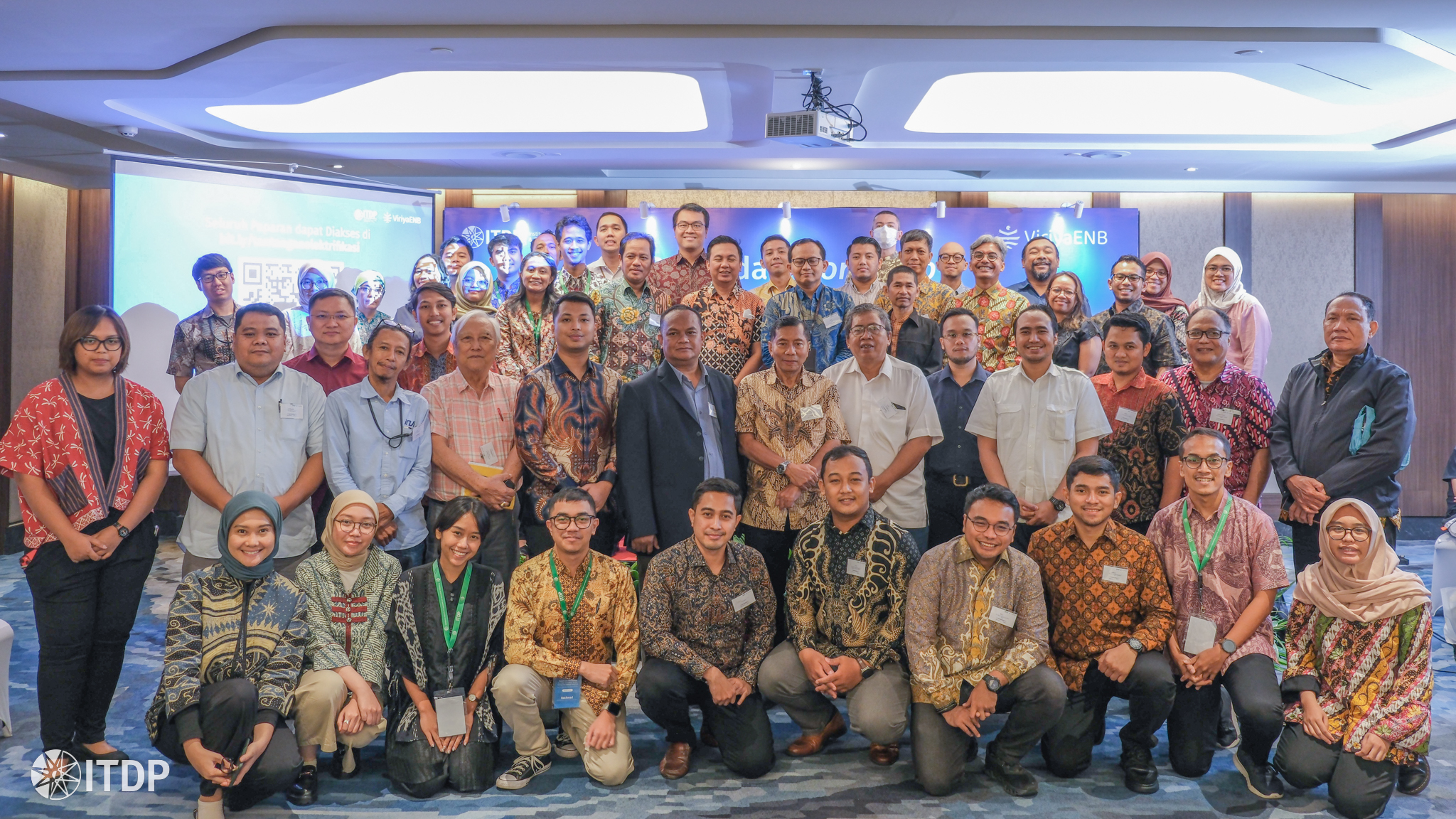
All discussion results in this activity will be an input for ITDP Indonesia in developing a roadmap and draft national incentive program for public transport electrification as a strategic guide for the Ministry of Transportation.


